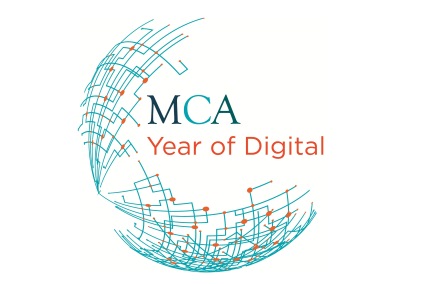The rapid digitisation of the economy represents an enormous, possibly once in a generation growth opportunity for British businesses, providing they can quickly put in place the right business strategies and hire the right skill sets to make it happen.
Digital has been defined in many ways, but fundamentally it is an interaction between machine and machine or machine and human to share information to drive an outcome. This encompasses far more than just a website or an app. It is a profound change in the way organisations and humans, operate.
Digital has been likened to the Industrial Revolution in terms of its impact on society and business. It is continuously opening up opportunities to create new products and business models and many countries and entrepreneurs see the digital revolution as a way to leapfrog from “developing to developed” or “start-up to sustained.”
However, many organisations are struggling with this challenge. This is partly because they don't have the right skills in place or are unsure how to extract value from them. Some are simply not far enough along their own digital journey to attract the right talent where it exists.
As part of its research to launch its Year of Digital, the Management Consultancies Association (MCA) recently surveyed Britain’s boardrooms and uncovered concerns about a digital skills gap in the UK. For instance, many businesses believe graduates simply don’t have the required digital skills. While 94% of senior executives view digital as important or very important to their businesses, 20% feel that graduates' grasp of digital is average to poor.
As other countries use digital to expedite their journey to economic success, the UK needs to take certain steps to ensure it can compete globally when it comes to realising the benefits of the digital economy.
Even though the latest generation entering the workforce is the most at ease with digital, there are nonetheless some doubts as to whether they can apply that in a business setting.
To help address this, a sense of excitement needs to be infused around the digitisation of business.
Also, the value of digital skills should be clearly communicated to the employment market. This means offering attractive financial rewards to employees with these skills, and looking beyond the traditional means of assessment when it comes to recruitment.
Some of the more 'aware' businesses now rank digital skills and social media influence as being as important as academic achievement. There are now employers asking graduates for a Klout score of 60 in addition to standard qualifications.
Employment opportunities should be created that give these skilled workers a platform for innovation. They also need career paths where tenure is not considered a key measure of success. Indeed, digital natives are expected to have on average 20 jobs and five careers in their lifetime.
These changes require a fundamental shift in mind-set among business leaders. But that shift is necessary if the UK is to retain its digital talent, given the international competition for these skills.
The role of government and education
The government can play a key role in helping UK firms. And it has a vested interest in doing so. Exploiting digital will bring the country significant wealth – creating benefits at a time when there is much debate over steering the economy in the direction of balanced growth.
There are a number of ways the government can help. Tax incentives for digital entrepreneurs and apprenticeship schemes are important. It can also communicate the benefits of digital to businesses through campaigns and ensure that digital skills are taught as part of the school curriculum as early as possible.
However, digital should not be viewed as a standalone subject. Just as is being seen with business, digital is a fundamental change in thinking and what is needed is a digitisation of curricula that embeds this topic throughout the education system.
This move will inevitably lead to new subjects gaining prominence such as robotics, genetic engineering and social collaboration. However, core skills in mathematics, engineering and science remain important bedrocks to building a highly competent workforce. They just need to be adapted to be relevant in a digital world.
Courses like economics, accounting and business studies will also need updating; entrepreneurialism, test and learn concepts and different financial approaches will need to come to the fore as traditional business cycles, open innovation, methods of raising capital and managing a P&L are disrupted by digital.
The government is already playing its role by bringing digitisation to the delivery of public services. As government departments and agencies touch everyone's lives at some point they are a good way of helping digitisation permeate widely across society. It demonstrates that digital is simply the new normal. It also demands that digital inclusion stay at the top of the agenda too. Nobody must be left behind.
Government is only part of the solution though. For companies – those that want to survive and thrive – the time to act is now.
Using the digital pioneers to expedite skills development
On a practical level there are a number of measures companies can quickly take to make use of the digital skills residing in their organisations.
Generation Y, defined as those born 1980-2000, are the most digitally aware generation in our workforce and their presence alone is changing the way businesses operate. Although many of them may have relatively junior roles, their familiarity with all things digital can play a key part in an organisation's transformation.
To capitalise on their skills, Accenture recently launched a 'buddy scheme.' This involves partnering digitally aware, often younger team members, with senior ones who may not be so digitally savvy.
For example, an analyst starting out in their career is partnered with a Managing Director to act as a kind of 'digital adviser.' The analyst has a role in helping develop the senior leader’s digital and social presence at the same time as increasing their competency. By simply tapping into how a different demographic thinks, the buddy scheme has helped to place digital at the heart of a number of strategic decisions. This has helped close the digital skills gap at Accenture.
But there's more to be done.
Many organisations probably have more people than they realise on their payrolls who possess digital skills, but are working in traditional roles. They are an untapped resource.
It might be a sales representative, whose core skills revolve around analytics, computer sciences or coding, for example. These are competencies, which lend themselves well to a digital environment.
These individuals can be re-orientated towards building an organisation's digital future. It's also a great way to induce a 'halo' effect around digital within the company.
For example, for a traditional insurance company looking to launch a new digital service to compete with Internet-only rivals it is very tempting to hire new teams. However, it is well worth that company first looking at its own workforce for potential digital pioneers.
Using them comes with the benefit that they already understand the organisation and its culture. They can potentially get up to speed more quickly than a team of new hires.
These people can be identified by HR departments through surveys and by studying employee records showing their past experience and qualifications.
However, these are only partial solutions. Longer-term there needs to be an increase in the number of graduates who not only understand traditional disciplines, but also have the ability to apply them in a digital environment.
It is an educational challenge, which starts with schools, feeds through to universities and carries on in the work place.
Digitising the UK economy requires a strong commitment from government, businesses through to individuals to make sure it happens.
 Rachel Barton is a Managing Director in Accenture’s Strategy practice. Rachel was recently an expert panellist at the MCA’s Annual Debate: Our Digital Future.
Rachel Barton is a Managing Director in Accenture’s Strategy practice. Rachel was recently an expert panellist at the MCA’s Annual Debate: Our Digital Future.

